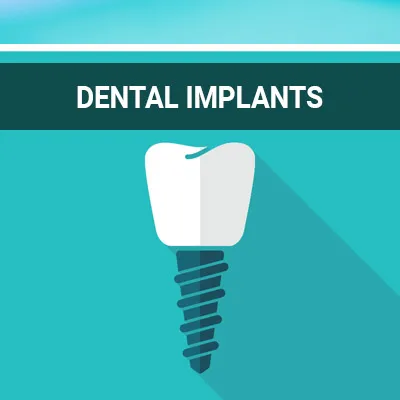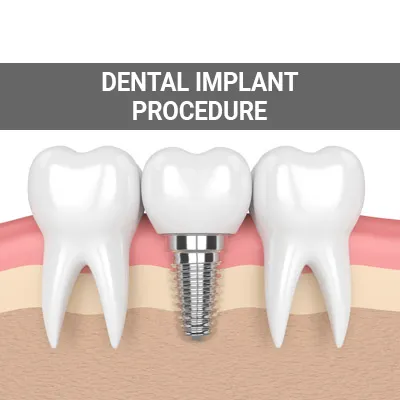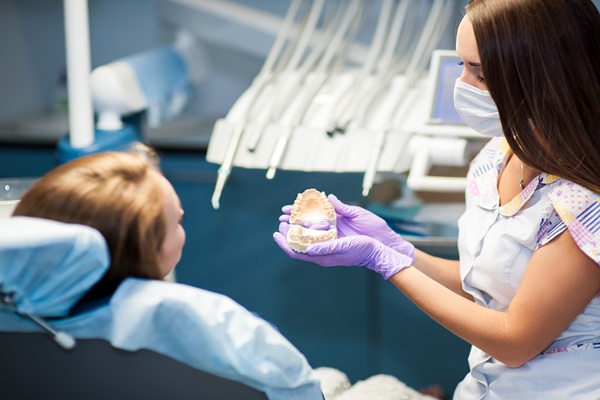Am I a Candidate for Dental Implants Fort Worth, TX
No one should have to live with missing teeth that cause cosmetic, functional, or oral health issues. In most cases, many people with missing teeth find dental implants to be a long-term solution. It is helpful to understand who makes an ideal candidate for dental implants and what factors you should consider when choosing the right teeth replacement solution.
Dental Implants are available at Lake Family Dental in Fort Worth and the surrounding area . We provide information about the process, answering questions, and discussing all possible options. Call us at (817) 263-0181 to learn more about dental implants and schedule an initial consultation today.
An Overview of Dental Implants
According to the American Academy of Implant Dentistry, more than three million Americans have dental implants, and the number continually grows by approximately 500 thousand each year. Dental implants are small titanium posts that are placed into the jawbone to serve as the root of a replacement tooth. The titanium posts are later topped with the replacement tooth or teeth usually in the form of a crown, bridge, or denture.
Individuals with missing or severely damaged teeth can achieve a more attractive smile and restore their oral health and function to an ideal level through dental implants. Unlike with dentures, there are no messy gluing and cleaning procedures and they do not have to be taken out at night. They are the tooth replacement option that most closely resembles the function of natural teeth.
“Individuals with missing or severely damaged teeth can achieve a more attractive smile and restore their oral health and function to an ideal level through dental implants.”
Possible Dental Implant Options
According to the American Dental Association, implants are one of the biggest advances in dentistry in the past four decades. Along with helping to restore functionality and completing a set of teeth, dental implants can also help restore the appearance of a natural smile. It is a versatile treatment option that works to treat a variety of complications including:
One Missing Tooth
Many dentists recommend dental implants to patients who have a missing tooth. Whether the missing tooth is the result of natural aging, a blow to the face or another cause, implants work well as a long-term replacement solution. For single tooth replacement, a dental crown will also be attached to the implant. The dental crown will provide the appearance of a natural tooth.
Multiple Missing Teeth
Implants are also an option for multiple missing teeth, as well. For a section of two or more missing teeth, the dentist may recommend dental implants with a bridge attachment. For full arch replacement, it might be best to attach a full denture to surgically-placed implants in the jaw.
Severely Damaged Teeth
Most dentists will try and save the natural tooth after damage occurs through dental crowns or another type of restoration. However, there are times when damaged or loose teeth are better off being removed and replaced with dental implants. This is the case in situations where an infected tooth threatens the patient's oral and overall health.
“Along with helping to restore functionality and completing a set of teeth, dental implants can also help restore the appearance of a natural smile.”
Signs That a Dentist Looks For
During the implant consultation, the dentist will conduct a thorough oral examination and most likely order dental X-rays to determine if the patient is a candidate for dental implants. The dentist will consider the gum health, bone density, and overall health of the patient during the first visit.
Gum Health
Natural teeth and dental implants work similarly, and they are both supported by the gums. If the gums are weak, eroded, or if the patient has periodontal disease, then the implant may not hold the way it should long-term. Implants are still an option with poor gum health, but additional treatment is likely necessary.
Bone Density
Dental implants replace the teeth while also preserving the natural bone. However, the jaw needs the proper amount of bone dentistry to support the dental implant. The jawbone is also essential for a firm hold of the implant, abutment, and artificial tooth. After tooth loss occurs, the bone inside the jaw begins to lose its density. Over time, this can result in the need for a bone grafting procedure to rebuild the strength and density of the jawbone. Once the jawbone is strong enough, we will begin the process.
General Health
The implant process also involves a minor surgical procedure to place the dental implant inside the jawbone. As is the case with any surgery, the patient should be willing and able to go through the process. This procedure is slightly more invasive than other replacement solutions.
“The dentist will consider the gum health, bone density, and overall health of the patient during the first visit.”
Check out what others are saying about our dental services on Yelp: Am I a Candidate for Dental Implants in Fort Worth, TX
The Procedure
A dental implant procedure can take many months because it involves multiple procedures that require healing time in between. Exactly how long and how many procedures will depend on the patient's unique situation. For example, patients who need bone grafting can expect the process to take longer.
Overall, patients undergo a series of outpatient procedures, typically starting with removal of damaged teeth or any bone grafting needed to prepare the jaw. Then, the dental titanium post is placed and the patient must recover after that procedure. It is important to give the jawbone ample time to heal around the post. The final step is the placement of the replacement tooth or teeth in the form of a crown, bridge or permanent denture.
“Exactly how long and how many procedures will depend on the patient’s unique situation.”
Questions Answered on This Page
Q. How are dental implants used to replace missing teeth?
Q. Who is a good candidate for dental implants?
Q. How long does the implant procedure take?
People Also Ask
Q. What are the benefits of dental implants?
Q. What happens during the implant placement surgery?
Q. What happens after the procedure?
Q. When is bone grafting necessary?
Frequently Asked Questions
Q. Can you get dental implants with crooked teeth?
A. Crooked teeth are not typically a problem, and most patients who have or had crooked teeth are still good candidates. While teeth and jaw alignment is important when determining if a patient is a candidate, most dentists can provide dental implants to patients with less than ideal teeth alignment. The first step will be to complete specific procedures to help prepare the mouth before the dental implant procedure.
Q. What might inhibit a patient from being a candidate for dental implants?
A. A significant loss of bone density may make dental implants a less desirable solution for patients who prefer not to go through bone grafting. Those who prefer a replacement solution that does not involve a surgical procedure may not make for an ideal candidate either.
Q. What process does a dentist use to determine if implants are an option?
A. Most dentists use the first visit with a patient to determine the most effective course of treatment. To determine if dental implants are an option, the dentist will conduct a thorough oral examination, order dental X-rays, and discuss treatment goals.
Q. What are the benefits of dental implants?
A. Dental implants offer various benefits that other teeth replacement solutions cannot, including the ability to prevent bone loss and last for much more extended periods than other options. Dental implants provide the natural appearance and function of teeth.
Q. How should one care for their dental implants?
A. Caring for dental implants is similar to caring for natural teeth. Patients should brush with low abrasive tartar-control toothpaste and floss twice daily. Dentists recommend a soft bristled toothbrush and an interdental brush for hard to reach places such as under an implant crown.
Dental Implant Terminology
Call Us Today
We are here to help patients make the right decision about treatment and determine if they are a good candidate for dental implants. If you are interested in learning more about dental implants treatment, then call us at 817-263-0181. We can schedule a time for you to come in for a visit. We can determine what your oral health needs for a healthy and bright smile.
Helpful Related Links
- American Dental Association (ADA). Glossary of Dental Clinical Terms. 2024
- American Academy of Cosmetic Dentistry (AACD). Home Page. 2024
- WebMD. WebMD’s Oral Care Guide. 2024
About our business and website security
- Lake Family Dental was established in 2004.
- We accept the following payment methods: American Express, Cash, Discover, MasterCard, and Visa
- We serve patients from the following counties: Tarrant County and Parker Count
- We serve patients from the following cities: Fort Worth, Benbrook, Crowley, Everman, Edgecliff Village, Westover Hills, Forest Hill, Kennedale, Aledo and River Oaks
- Norton Safe Web. View Details
- Trend Micro Site Safety Center. View Details
Back to top of Am I a Candidate for Dental Implants












